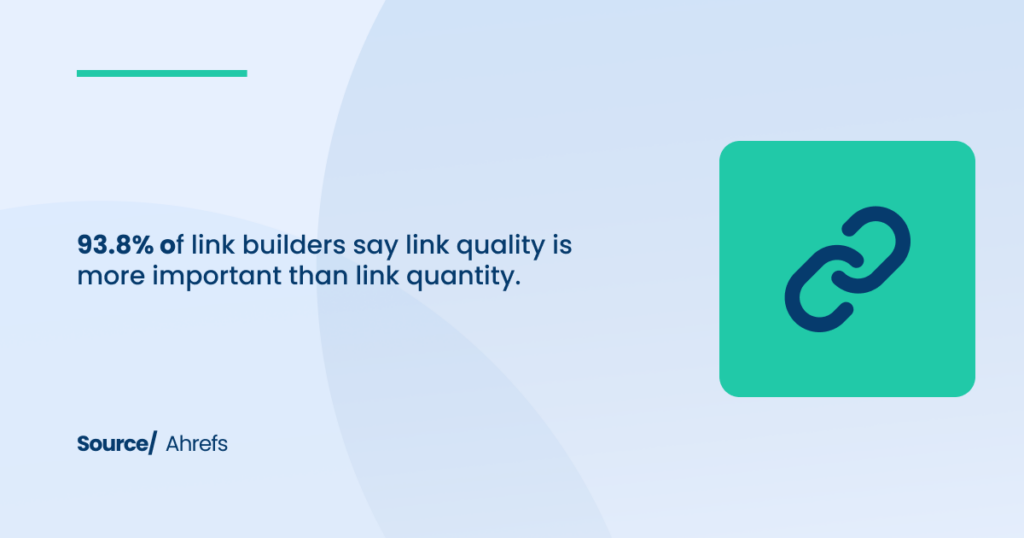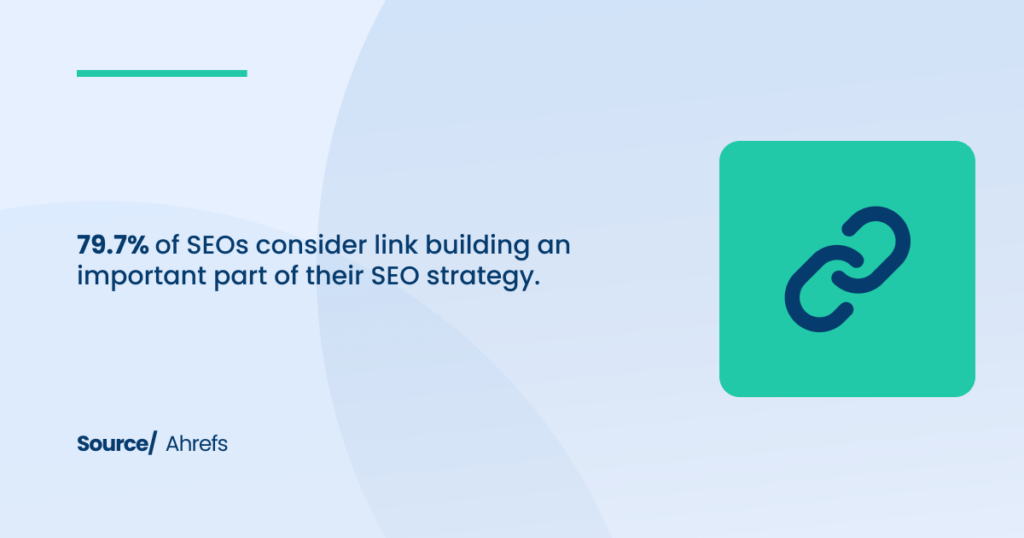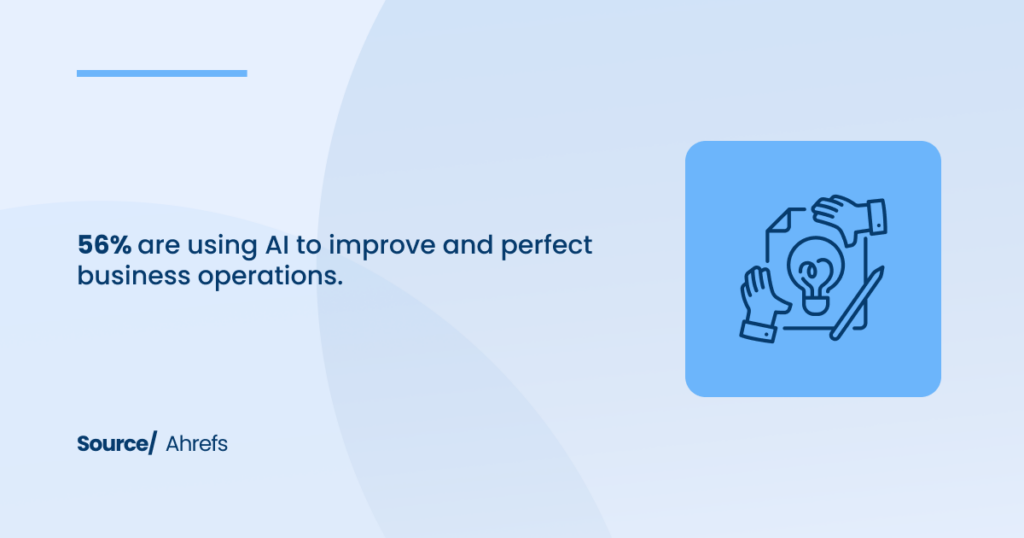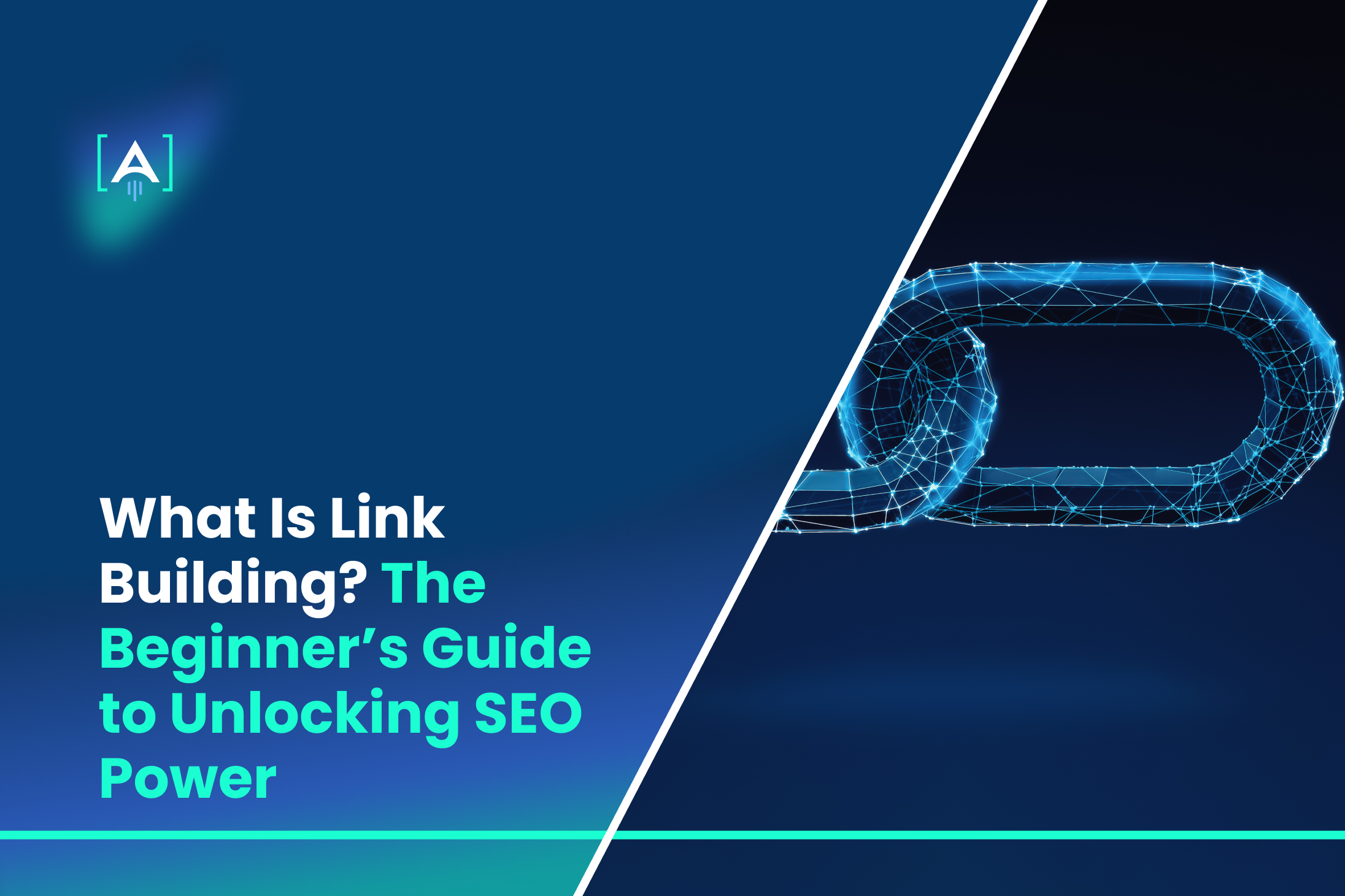Imagine your website as a shop located on a busy avenue. The more pathways and signs leading to it, the more visitors you’re likely to attract.
That’s exactly what link building does—it creates those essential connections, directs traffic, and builds trust with search engines and people alike.
But here’s the catch: not all links are created equal.
Some act as golden recommendations, skyrocketing your search engine rankings, while others can drag your reputation into murky waters.

The essentials of Link Building are:
- Quality Over Quantity
- Create Link-Worthy Content
- Leverage Relationship
Understanding link building process isn’t just a “nice-to-know”—it’s the key to staying ahead in today’s competitive digital landscape.
Link Building Agency will help you uncover opportunities to connect with authoritative websites, boost your online visibility, and drive quality traffic to your site.
Let’s dive in and learn what is Link building and how to unlock SEO Power.
What Is Link Building, Really?
Imagine you’re hosting a grand business event. The success of your event depends not only on what you offer but also on who recommends it.
When trusted individuals vouch for your event, others are more likely to attend, trust, and engage.
Link building works the same way for your website—except here, the “recommendations” come in the form of backlinks.
Why Do Search Engines Care About Backlinks?
Search engines, like Google, see backlinks as votes of confidence.
A backlink from a trusted, authoritative site signals that your content is valuable. The more quality backlinks you earn, the more your website appears trustworthy to search engines.

In fact, backlinks are one of the top-ranking factors in Google’s algorithm.
Why Link Building Is Like Building Business Relationships
At its core, link building is about connections.
Just as CEOs build partnerships to grow their businesses, white hat link building fosters authentic connections in the online world. These links are earned ethically, without manipulation, ensuring long-term SEO benefits.
Think of It Like Networking
- Quality Connections Matter: A backlink from Forbes or a well-known industry blog holds more weight than dozens of links from low-quality sites.
- Relevance Is Key: A link from an industry-specific site (e.g., a tech blog for a software company) is far more valuable than one from an unrelated source.
- Endorsements Build Trust: When authoritative sites link to your content, it sends a clear message: This business knows its stuff.
The Anatomy of a High-Quality Link
Imagine a backlink as a business referral.
Not all referrals carry the same weight, and some hold the power to transform your online presence. To truly harness the power of link building, it’s essential to understand what separates a high-quality link from a mediocre one.
The foundation of a valuable backlink begins with authority.
Search engines like Google trust websites that have earned credibility over time, much like how a personal recommendation from a respected professional can boost your reputation. For example, a backlink from Forbes or The Wall Street Journal signals to Google that your site is credible and worthy of ranking higher in search results.
This kind of trust isn’t built overnight but is the result of consistent value creation and ethical SEO practices.
Relevance is the second pillar of a high-quality link.
Picture this: you’re a real estate CEO, and a link to your site comes from a blog about recipes. It’s off-topic and, frankly, confusing. However, if a respected property investment blog links to your page, that connection is logical and valuable. Search engines prioritize relevance because it ensures the user gets exactly what they’re searching for. The closer the linking site aligns with your niche, the more impactful that link becomes.
The placement of a backlink also matters more than you might expect.
A link buried in the footer or a hidden sidebar doesn’t carry the same value as one featured prominently within the main body of an article. It’s like attending a conference and having your company mentioned in passing versus being the keynote speaker. The latter makes a more substantial impression.
When Link Building Goes Rogue
Link building, when done right, builds authority and trust.
But when it strays into unethical territory, it can tarnish your brand and bring severe penalties. In the world of SEO, shortcuts rarely lead to sustainable success.
The most common rogue tactic is buying links. On the surface, this might seem like an easy way to gain a competitive edge, but it’s a risky gamble.
Search engines like Google are increasingly adept at detecting paid links. When caught, your site could face penalties that drastically reduce its visibility. For a CEO, this translates to lost traffic, diminished brand authority, and ultimately, fewer leads and revenue.
The Low-Hanging Fruit: Foundational Links
If you’re just starting out with link building, think of foundational links as the easy wins—those small yet impactful steps that lay a strong base for your digital strategy.
These links may not single-handedly skyrocket your rankings, but they create the essential groundwork for larger SEO success.
One of the simplest ways to begin is by setting up social profiles.
Platforms like LinkedIn, Twitter, Facebook, and Instagram allow you to include a link back to your website. While these are often nofollow links (meaning they don’t pass SEO value directly), they establish your online presence, build brand trust, and help search engines associate your site with authoritative profiles.
Next, leverage business directories—an underrated but powerful strategy.
Directories like Google Business Profile, Yelp, and industry-specific directories are excellent for local link building. These links enhance your local SEO by making your business more visible in relevant search results. For instance, a construction company listed on regional directories can rank higher for “best contractors near me.”
Internal linking is another foundational tactic that is often overlooked. Think of your website as a map; internal links are the paths connecting different landmarks. By linking your high-traffic pages to newer or less visible content, you guide both users and search engines to the information you want highlighted. Use tools like CTR Calculators to determine which pages are performing well and strategically link them to underperforming pages.
Content That Earns Links Without Asking
Imagine creating content so compelling, so valuable, that other websites link to it without you ever asking.
Source: SemRush
This is the dream scenario for CEOs and business owners looking to grow their digital footprint efficiently. But what kind of content achieves this, and how do you create it?
Case Studies
Case studies are one of the most powerful types of magnets for backlinks. They showcase real-world success stories that other businesses love to reference.
For example, if your company used an innovative ROI Calculator to save 30% on costs, document the process and results. Business blogs and industry publications are likely to link back to such detailed, actionable insights.
Original Data
Numbers speak louder than words, and original research carries immense weight in the digital world.
Whether it’s a survey, an experiment, or unique analytics derived from your CPC Calculator or ROAS Calculator, presenting fresh data positions your business as a thought leader. Journalists, bloggers, and analysts will often cite your findings, adding valuable backlinks to your website.
Infographics
Visual content is inherently shareable. Infographics, in particular, are highly effective because they distill complex information into an easily digestible format.
For example, an infographic on “How to Optimize Your CAC Calculator Results” could attract links from marketing blogs and financial resources. The key is to make the design both visually appealing and informative.
How-To Guides
Step-by-step guides are evergreen content that naturally attracts backlinks. Think “How to Use the Skyscraper Technique to Boost SEO” or “Mastering Local Link Building in 5 Steps.” By providing detailed instructions, actionable tips, and relevant examples, you create a resource that others in your industry will want to reference.
Interactive Tools
Interactive tools like CTR Calculators or ROI Calculators are link-building gold mines. These tools provide tangible value to users, making them more likely to share your resource.
Imagine a blog post titled “The Best ROI Calculator for Small Businesses,” featuring a link to your tool. That’s the kind of organic visibility and backlinks that set your business apart.
AI-Powered Outreach: Work Smarter, Not Harder
Gone are the days when link-building outreach meant crafting hundreds of personalized emails one by one.
Source: Grand View Research
With advancements in AI technology, tools like ChatGPT and other AI-powered platforms are revolutionizing how businesses scale their link-building strategies.
The Role of AI in Outreach
AI is like having a highly efficient assistant that doesn’t sleep.
For link building, this means automating repetitive tasks without losing the personal touch. Tools like ChatGPT can craft compelling, customized email templates tailored to individual recipients, making your outreach efforts more engaging and effective.

Imagine you’re targeting local websites for local link building. Instead of manually drafting personalized emails for each recipient, AI can analyze their website content and suggest tailored pitches. For example, ChatGPT can help you write something like:
“Hi [Name], I came across your article on [Topic] and thought it was fantastic. I believe our latest guide on [Related Topic] could be a great resource for your readers.”
This approach not only saves time but also ensures that your outreach feels authentic and relevant.
Scaling Without Sacrificing Quality
AI tools excel at scaling tasks while maintaining consistency.
Platforms like Apollo or Outreach.io integrate AI-driven insights, allowing you to manage hundreds of emails while personalizing them based on specific data points.
Whether you’re pursuing broken link building or the skyscraper technique, AI ensures you’re delivering quality pitches without spreading your team too thin.
Moreover, AI can analyze the tone, structure, and effectiveness of your emails, offering suggestions for improvement. For example, if recipients engage more with emails containing data, AI can recommend integrating relevant statistics such as “Did you know that 60% of websites with backlinks rank higher in SERPs?”
Data-Driven Targeting
AI doesn’t just help with writing—it helps with targeting.
By using machine learning, tools like ChatGPT can identify patterns in your competitors’ backlink profiles. This insight can guide your strategy for competitor backlink analysis. For instance, AI can spot opportunities like high-authority blogs frequently linking to your competitors’ types of backlinks, enabling you to craft a pitch specifically tailored for those sites.
Track, Measure, and Refine with Analytics Tools
Effective link building doesn’t end with securing backlinks—it requires continuous monitoring, analysis, and improvement. This is where analytics tools like Ahrefs, Moz, and SEMrush come into play.
For CEOs aiming to maximize ROI, understanding the performance of your link-building campaigns is just as crucial as executing them.
Why Analytics Matter in Link Building
Analytics tools are the backbone of a successful link-building strategy. They answer critical questions such as:
- How many backlinks have we gained?
- Are these links driving relevant traffic to our site?
- How do our efforts compare to competitors?
By providing actionable data, these tools empower you to refine your approach and ensure you’re investing resources wisely.
Ahrefs: The Link Building Powerhouse
Ahrefs is like a Swiss Army knife for SEO, offering features that cater to every stage of your link-building journey. Its Site Explorer allows you to analyze competitor backlink profiles, identifying high-value links you might replicate. For example, if your competitor has gained links through the skyscraper technique, Ahrefs helps you pinpoint the exact content driving those links.
The Content Explorer feature is particularly useful for local link building. Let’s say you want to target regional blogs or directories. Ahrefs can filter results by location, domain authority, or traffic, ensuring your outreach efforts are laser-focused.
SEMrush: All-in-One Campaign Management
SEMrush excels in tracking the progress of your campaigns. Its Backlink Analytics dashboard provides a real-time overview of your backlink portfolio, highlighting new links, lost links, and overall domain authority growth. This insight is invaluable for assessing the success of your link building strategies.
Source: SEMrush
SEMrush’s Link Building Tool streamlines the outreach process by identifying link opportunities and managing communication all in one place.
For example, if you’re pursuing broken link building, SEMrush can automatically flag broken links on high-authority sites, making it easier to pitch your content as a replacement.
Moz: Simplifying Metrics for CEOs
Moz stands out for its simplicity, making it ideal for CEOs who want high-level insights without diving too deep into technical details. Its Domain Authority (DA) metric is widely recognized, helping you evaluate the quality of potential backlink opportunities at a glance.
Source: Moz
Moz also offers a Link Intersect Tool, which identifies websites linking to your competitors but not to you. This is particularly useful for competitor backlink analysis.
For instance, if three competitors are linked by a prominent industry publication, Moz will flag this as a high-priority target for your outreach.
Refining Your Strategy with Data
Analytics tools aren’t just about tracking—they’re about refining. For example:
- If you notice that a majority of your new links come from low-authority sites, it’s time to focus on high-DA targets.
- If traffic from backlinks isn’t converting, revisit your landing pages and ensure they align with user intent.
By continuously monitoring metrics like referral traffic, conversion rates, and link quality, you can adapt your strategy to deliver better results.
How to Make Friends in High Places: Outreach Done Right
Effective link building is about forming relationships, not transactions.
In the digital realm, these relationships can be as influential as personal connections, opening doors to new audiences, authority boosts, and lasting collaborations.
Your Network Is Your Net Worth
Building backlinks isn’t just about sending emails; it’s about cultivating meaningful relationships with the right people. Think of it as networking in the digital world—your network directly influences your reach and reputation.
In white hat link building, forming bonds with industry peers, bloggers, and influencers is invaluable. These individuals already have the trust and engagement of their audiences.
When they link to your website, it acts as an endorsement, signaling to search engines like Google that your content is authoritative and valuable.
For CEOs, this means prioritizing quality over quantity. A single backlink from a respected industry blog can often outweigh a dozen links from smaller sites. For example:
- Collaborating with a prominent local link building directory can drive targeted traffic to your website.
- Hosting industry-specific webinars can connect you with bloggers who naturally link back to your content.
Investing time in genuine relationship-building might feel slow, but the ROI compounds. Studies show that websites with strong backlink profiles rank significantly higher on Google, leading to more visibility and conversions.
Beyond Cold Emails: Human-Centric Outreach
Cold outreach is a starting point, but human-centric outreach takes it to the next level. Instead of generic, one-size-fits-all emails, focus on offering value upfront.
1. Create Partnerships, Not Just Backlinks
Partnering with complementary businesses can be a game-changer.
For example, if you’re in SaaS, collaborate with a blog covering tech solutions. Offer a guest post that highlights mutual expertise or propose co-branded content that benefits both audiences.
2. Conduct Exclusive Interviews
Interviews are a fantastic way to secure natural backlinks while showcasing expertise. Reach out to influencers or industry leaders for insights, and share the published piece widely. They’ll often link back to the interview, increasing your visibility.
3. Offer Value-Driven Incentives
Instead of asking for a backlink outright, provide something valuable:
- Share unique data or case studies that align with their content.
- Develop a tool like an ROI calculator or CPC calculator and offer free access.
- Create custom local link building guides tailored to their audience.
By focusing on value, you’ll see more doors open for collaboration. Remember, no one likes to feel like they’re being used—building goodwill is key.
Link Building: Your Key to Long-Term Digital Growth
Now you know what is link building 🙂 Indeed, Link building isn’t just an SEO tactic—it’s the art of forging meaningful connections in the digital space. Think of each quality link as a vote of confidence, a handshake of trust from one site to another.
[A] Growth Agency will benefit to your success. Our experienced team understands that effective link building is more than just backlinks. It’s about creating a strategy tailored to your business goals.
Excellence is our standard. We’re a team of data enthusiasts and creative thinkers, passionate about mixing numbers with creativity.
Consider that every business we work with is a partner. We’re invested in their success as deeply as our own, fostering a mutual growth journey.
It is only the overview of us 🙂

